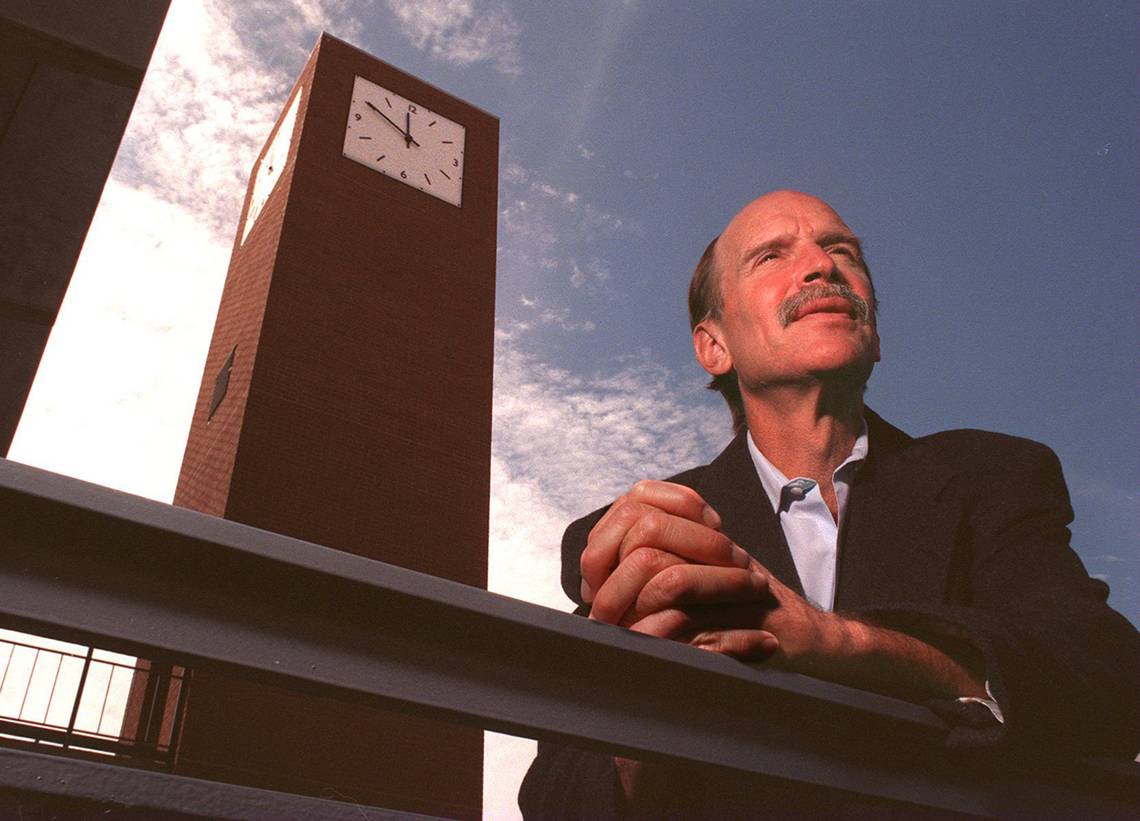
Robert Levine pictured for a Fresno Bee story about his international best-selling book, “A Geography of Time.” MARK CROSSE FRESNO BEE ARCHIVE PHOTO
The psychology community and Fresno State are in mourning this week due to the loss of renowned social psychologist and long time professor emeritus Dr. Robert Levine.
According to the
Fresno Bee, Levine died on Saturday at the age of 73 due to heart failure
caused by a viral infection. Reports say that his illness was sudden and
unexpected.
Levine was a recipient of numerous awards for his work in teaching, research and writing. During his time at Fresno State, Levine earned the university’s top teaching honor, the Provost’s Excellence in Teaching Award in 2007, Outstanding Professor of the Year and the following year received his professor emeritus status.
As the author of numerous books, his latest “Stranger in the Mirror: The Scientific Search for the Self,” was the topic of discussion in a guest lecture for the Center for Creativity and the Arts Levine gave in March of 2018.
Below is a look back at Levine’s lecture, which was covered by The Collegian reporter Jorge Rodriguez:
Dr. Robert Levine gives insight on “The Voices in our Heads”
Renowned social psychologist and Fresno State professor emeritus Dr. Robert Levine conducted a special lecture, with the subject pertaining to “The Voices in our Heads,” at the Alice Peters auditorium on March 22.
The
event was organized by the Center for Creativity and the Arts (CCA) and the
lecture was meant to tie-in the yearlong theme of “Voice and Silence”, which
the center has been promoting to students.
The evening began with Cindy Urrutia, the director of the CCA, introducing Levine who started by introducing the topic of “Voices in our Heads” to the audience.
“We’re
very fortunate that Dr. Levine agreed to give this interesting lecture,”
Urrutia said. “These types of lectures are an opportunity for the community to
have access to information, this is free and open to the public.”
Levine
talked about how the affliction of hearing voices in a person’s head is similar
to seeing a different person when looking in the mirror, which is something he
talks about in his latest book, “Stranger in the Mirror: The
Scientific Search for the Self.”
At
one point Levine gave those in attendance the experience of hearing multiple
voices in their head by playing a soundtrack of several voices, all speaking at
once, showing them what a person suffering from this affliction might hear in
their heads.
Later
on Levine explained how people would respond to the voices that they would
hear, saying that some would ignore the voices and others would follow the
directions they were given by the voices. Levine went on to mention that every
voice in our head are different and has different characteristics.
Levine
continued explaining how culture plays a major role in what we hear in our
heads, saying that in different parts of the world the voices in our head can
give good advice and that depending on what culture the affliction may be
positive.
After
a short period of questioning from the audience, Levine moved on to talk about
the normality of the voices we hear. Levine asked the audience, “How often do
you hear a voice in your head? And is it bad or is it just you having a
conversation with yourself?”
Levine
explained that most of the time when someone talks to themselves, they are
actually speaking with a voice and that voice is in their head. Levine compared
the feeling to how music becomes stuck in a person’s head, which can be a good
or bad experience depending on whether they like the music or not.
Levine
concluded the lecture talking about John Nash, who was a Nobel Prize winner and
a Princeton Mathematician, who was afflicted by hearing voices in his head.
Levine explained that when people would ask Nash why he listened to the voices
in his head, Nash would say that those were the same voices that would help him
solve math problems, so to him they were not bad.
Once
the lecture was finished, Levine thanked everyone in attendance and once again
took questions from the audience.
“These
kind of events are a great way of bringing people together who have a different
way of looking at things,” Levine said. “The audience should take away the
importance of thinking about coming to terms with the ways we are imperfect and
perhaps finding other ways to work through it.”